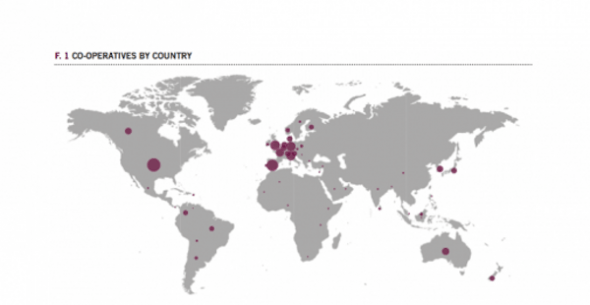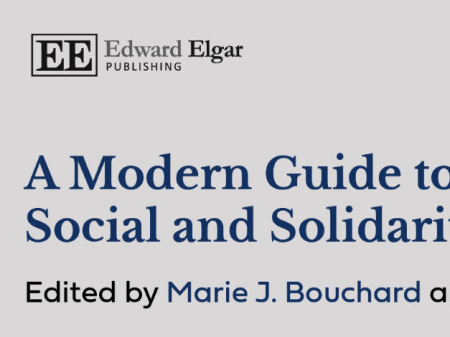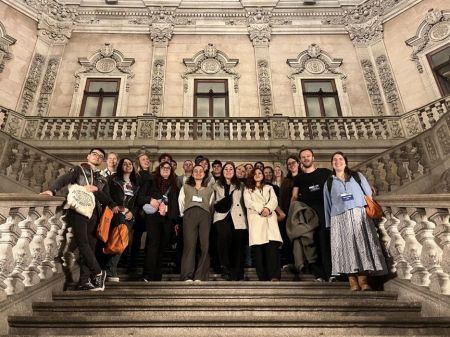We are pleased to share news of a new book relevant to…
Top 300 co-ops are worth over 2 trillion dollars

The world’s top 300 co-operatives have continued to grow, achieving an overall turnover of USD $2,097 billion in 2011. The results of the survey confirm an increase from 2010, when the world's top 300 co-operatives, distributed in 24 countries, had a turnover of USD $1,975 billion.
Released at the Global Conference of the International Co-operative Alliance, the World Co-operative Monitor collected data on the world’s largest co-operatives as of 2011.
By applying the Global300 methodology to data collected by the World Co-operative Monitor, the ICA, with the support of EURICSE, identified the top 300 co-operatives and mutuals in terms of revenue. This exercise revealed that the world’s top 300 co-operative and mutual organisations, spread across 23 countries, were worth over USD $ 2 trillion.
Over 41 per cent of these co-operatives were active in the insurance sector, followed by agriculture (28 per cent), wholesale (21 per cent) and banking and insurance (5 per cent).
According to the Monitor, the three largest co-operative and mutual organisations by turnover were based in Japan: Zenkyoren (USD $81 billion), Zen-Noh (USD $52 billion) and Nippon Life (USD $61 billion). The US insurer and financial services provider, State Farm Group (USD $57 billion) came fourth, while German wholesale and retail co-operative Rewe Group (USD $52 billion) was the fifth largest co-operative by turnover.
Apart from monitoring the economic impact of the sector, EURICSE also focused on the social dimension of the sector by showcasing some of the most successful co-operatives in the world. Case studies include one of Indonesia’s largest co-operatives, Koperasi Warga, Canadian insurance co-operative, The Co-operators, and Finnish retailer, SOK Corporation.
In the US the National Rural Electric Cooperative Association serves over 42 million customers, bringing electricity to millions of rural homes. The Monitor also reveals how Unimed is helping over 19 million Brazilian customers gain access to health services. Founded in 1967, Unimed is now the largest network of medical co-operatives in the world and the country’s biggest private healthcare provider.
Gianluca Salvatori, the CEO of the European Research Institute on Cooperative (EURICSE) explained that without a good knowledge of the co-op sector based on accurate data, the movement would lack visibility within the business world, policy makers and the public.
“If we do not have the right comprehension of the co-op movement it is difficult to make any strategic planning for the future,” adds Mr Salvatori.
Although the Monitor does not currently include data on co-operative legislation, Mr Salvatori says that EURICSE is considering including new criteria of assessing the impact of the movement in the coming years.
EURICSE encourages co-operators from all over the world to fill in the survey and contribute to the Global Cooperative Monitor database on www.monitor.coop.
The Monitor gathers data on 2,032 co-operatives from across 56 countries. It shows that 1,465 co-operatives from 42 countries had a turnover over USD $100 million in 2011.




